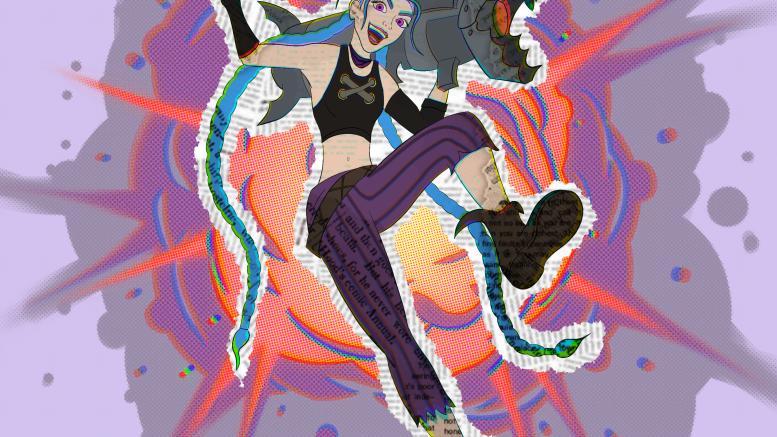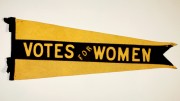My fall semester so far has involved neglecting my growing September backlog of games in favour of the most divisive video game of our time, League of Legends (LoL).
I am no average League player in that I seldom play the game anymore. But as a LoL e-sports fan anticipating Worlds 2023, the global championship, this October, I’ve been reflecting on the post-lockdown politics of the League Championship Series (LCS), North America’s premier professional LoL League.
Last year, an investigation initiated by Riot Games — the developer of LoL in charge of the entire LCS — revealed the CEO and co-founder of e-sports organization Team SoloMid (TSM), Andy “Reginald” Dinh, had a history of abuse and harassment in the workplace.
It took a scathing Twitch stream from renowned pro player Yiliang “Doublelift” Peng in 2021 sparking widespread social media awareness of the issue for Riot to act. Apparently, videos from as early as 2013 of Reginald harassing his TSM teammates were insufficient evidence for Riot to take action. TSM sold its LCS spot to another e-sports organization, Shopify Rebellion, last Thursday.
In March 2023, Riot also began an investigation into reports of e-sports organization Evil Geniuses (EG) forcing its prodigious player, Kyle “Danny” Sakamaki, to play LCS matches through rapidly declining mental and physical health conditions in the 2022 Summer Season.
Despite pleas from Danny’s coaches and teammates, EG’s upper management left his condition untreated for so long that when he was finally allowed to step down after helping the team qualify for Worlds 2022, he was diagnosed malnourished and promptly taken for medical treatment. Danny is no longer playing professional League.
Riot is also known for gross abuses of power, despite its role in the aforementioned investigations. The company recently settled a sexual harassment and gender discrimination lawsuit for US$100 million, levied by numerous women who either previously or currently worked for the company. This was the largest settlement of its kind in the history of the state of California’s Department of Civil Rights.
This year, Riot committed to messing with its pro players’ lives. Prior to the league’s Summer Split, the LCS’s 10 franchised teams voted unanimously in favour of a motion that eliminated the obligation to maintain a sister team in the LCS’s feeder tier-2 league, the North American Challengers League (NACL).
This vote happened in secret, without the knowledge of the players or the LCS Players Association (LCSPA), and when everyone was busy watching Cloud9 and Golden Guardians getting eaten alive at the 2023 Mid Season Invitational. Seven teams pulled out of the NACL overnight and up to “70 players, coaches, and management” found themselves jobless without warning the next day.
The NACL is important because it works as a feeder for tier-1 or professional level LoL. Effectively eliminating the NACL means there is no one to invest in rising local talent in North America.
On May 12, as a tsunami of labour discourse was flooding Los Angeles 10 days after the start of the Writer’s Guild of America strike, the LCS players voted overwhelmingly in favour of a motion from the LCSPA to stage a walkout. What ultimately resulted was a two-week delay to the start of the LCS Summer Split, necessitating a condensed regular season schedule of six weeks from the usual nine.
I can’t relate to e-sports athletes, because they get paid up to seven figures to play an accursed video game 16 hours a day. It is clear though, that pro players would rather be doing their jobs than protesting labour conditions, much like any worker. And much like Netflix, Riot and team owners abuse and cast aside the workers responsible for driving their profits.
A disheartening trend endemic to the LCS is aspiring pro players coming up through the North American ecosystem consistently being shunted by teams in favour of imported players from historically stronger regions. The goal with this formula is typically to win an LCS title and break into the top eight at Worlds. Yet, one to two year contracts for imports sometimes cost teams millions, magnitudes more than pulling North American players from amateur leagues or the NACL.
Superteams comprising majority imports almost always miss top eight at Worlds, and these players exit the league one to two years after entering. Players with untapped potential grinding for years in amateur leagues and the NACL for a shot in the big leagues have been retiring from pro play increasingly, citing the excess of imports in the LCS as a barrier to entry.
This trend culminated in the LCS’s worst ever record at Worlds last year, coinciding with the lowest number of NA players at the tournament ever. Of the 15 players the LCS sent, only three were North American.
In light of this corrosive capitalist nonsense and the disappointment I feel watching North American teams fail at Worlds every year, I am reminded of why I am still invested in the LCS.
Fans of the LCS are attached to North American talent. One organization, Cloud9’s maniacal CEO Jack Etienne once called LCS fans xenophobic for their disdain toward imports. Jack sucks. He is horny for a future where no League player in North America who dares to dream of topping the game’s ranked ladder and going pro is ever given a shot.
The criticism of imports is not xenophobic, but a call for companies in LoL e-sports to recognize the potential of local talent, foster them, pay them fairly, and ultimately acknowledge the hard work required to bring financial satisfaction to belligerent gamer CEOs like Reginald.
After the dust settled from the walkout, Jade “Sheiden” Libut, hailing from Winnipeg, made his LCS debut on Evil Geniuses. Sheiden’s performance was middling at best, and Evil Geniuses bombed out of Worlds contention early into the playoffs. Despite all this, and the fact that he left Winnipeg without being able to locate it on a map, I rooted for him. To me, he represents the daring gamer, or worker, who we should be taking more chances on.
The LCS champions and first seed for North America at Worlds this year, NRG e-sports, are a team of unproven North American talent like Sheiden. If the teams representing my region at Worlds are going to lose anyway, I would rather see a team like NRG do it than repeat the cycle that brought us last year’s results.





